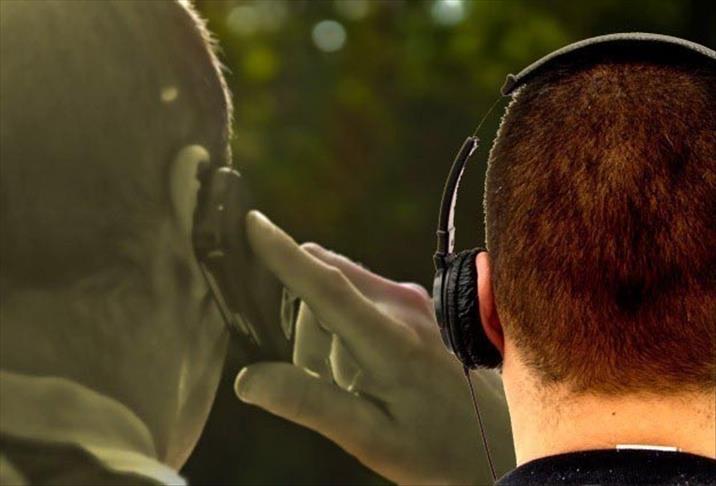
ANKARA
When British government translator Katherine Gun received a secret email in 2003 from U.S. security seeking help in wiretapping U.N. figures ahead of a crunch vote on Iraq, she was taking the first step on a road which would see her risk her career, her future and her freedom. Now, in an exclusive interview with the Anadolu Agency, she reflects on her choice and says more whistleblowers are at risk then ever.
Gun was working an ordinary day at Britain’s top-secret GCHQ listening post when she received an email from a senior figure in the United States’ National Security Agency.
The NSA wanted to intercept the communication of six members of the UN Security Council (Angola, Bulgaria, Cameroon, Chile, Guinea and Pakistan) thought to be undecided on a UN resolution needed to approve military intervention against Saddam Hussein's Iraq.
Gun had to make a choice.
She could either follow her conscience and leak the email to the public or continue with her day-to-day work as a Mandarin-to-English translator.
Gun was the only GCHQ employee out of 100 who saw the message and dared to risk her career to share the secret with the public.
Speaking to the Anadolu Agency, Gun said: “All I could think about was Iraqi civilians who have already suffered so much and they were going to suffer again.”
“They [the U.S.] wanted to know what those diplomats were thinking, what they were doing and any other information that the U.S. could use against them. They wanted everybody in the U.N. to vote for second resolution of 1441, which means they could go to a war against Iraq.”
By leaking the email to a friend who passed it to a journalist, Gun, now 40, risked her career, her future and her freedom.
After the leak, Gun was fired, subsequently arrested and charged with breaching the U.K.’s Official Secrets Act. Within half an hour, her case was dropped because the prosecution declined to offer evidence.
When asked if she would do the same again, Gun says: "I know it didn’t actually stop the war, but at the time I didn’t know that. If I were in the same time in the place I would do it again.”
- “Obama has charged more whistleblowers”
Gun now claims that more whistleblowers such as herself are being prosecuted for revealing classified information: “[U.S. President] Obama has charged more whistleblowers than all the other previous presidents combined.”
Only 10 people in the U.S. history have been charged with espionage for leaking classified information, seven of them under Barack Obama's administration, the U.K.’s Guardian newspaper reported on August 2013.
The question of who exactly counts as a whistleblower often lies at the heart of such cases. One intelligence expert says the U.S. does not charge whistleblowers by definition -- if a person is a ‘whistleblower’ he or she is protected by certain laws from punishment.
Director of the Defense and Intelligence Project at Harvard University, Kevin Ryan, told AA: "The issue is deciding who is a whistleblower and who is unlawfully disclosing secrets."
In the case of former NSA contractor Edward Snowden, who revealed documents showing that the U.S.’ largest spy agency monitored world leaders as well as American and foreign citizens, the U.S. government characterized his actions as criminal and not protected under the ‘whistleblower’ category, Ryan adds.
“Some people disagree with that characterization. I, myself, am not convicted yet one way or the other.”
Regarding German politicians who are going to invite Snowden to give evidence as part of a new investigation into the NSA’s surveillance of senior German leaders, Gun says: “It might be a good example if the German government takes notice and gives [Snowden's allegations] credibility because Germany was a friend of the U.S.”
As for NSA’s wiretapping of phone conversations made by members of the U.S. Congress, Gun said: “As soon as politicians notice it is happening to them they jump up and down and they protest. When that’s happening other people they don’t complain about it.”
-“Journalists who helped Snowden are afraid of going back to the UK”
Pointing to calls for the prosecution of journalists in the UK such as Alan Rusbridger, the editor of the Guardian, and British journalist Sarah Harrison -- who said in an article on March 14 that her links to Snowden mean she is treated as a threat and can't return to the UK -- Gun says: “The Guardian is under a lot of pressure from the Snowden revelations.”
Journalists who helped Snowden are afraid of going back to the UK in case they are prosecuted, Gun stresses.
“If there is an abuse of power, it should be open to public. As soon as they try to silence that voice, it is not a democracy anymore," she stresses.
Emphasizing that the actions of the U.S. and the U.K. in the Middle East disregard the law and are an abuse of power, she says: "Killing innocent civilians around the world, that is what drives towards terrorism."
"The leaks are just exposing that," she stresses.
Mentioning historical ties between GCHQ and the NSA, Gun, who is also the subject of a Danish documentary 'The War Campaign - how to sell a war', stresses: “GCHQ receives a lot of funding from NSA.”
Gun is among a growing group of whilstleblowers who have paid a high price for revealing sensitive information. With the stream of revelations set to continue, countries will have to revise their security strategies and may be forced to make them more human-rights friendly.
englishnews@aa.com.tr


